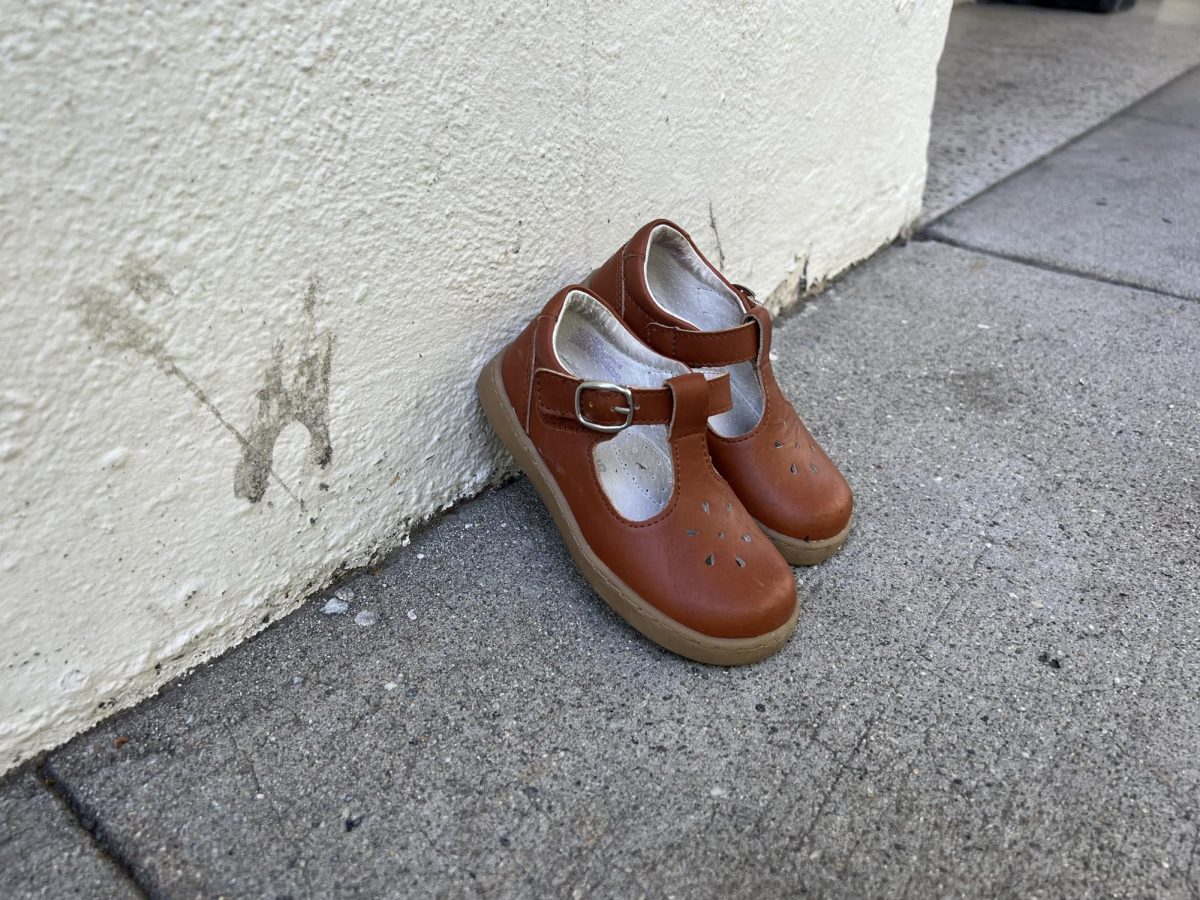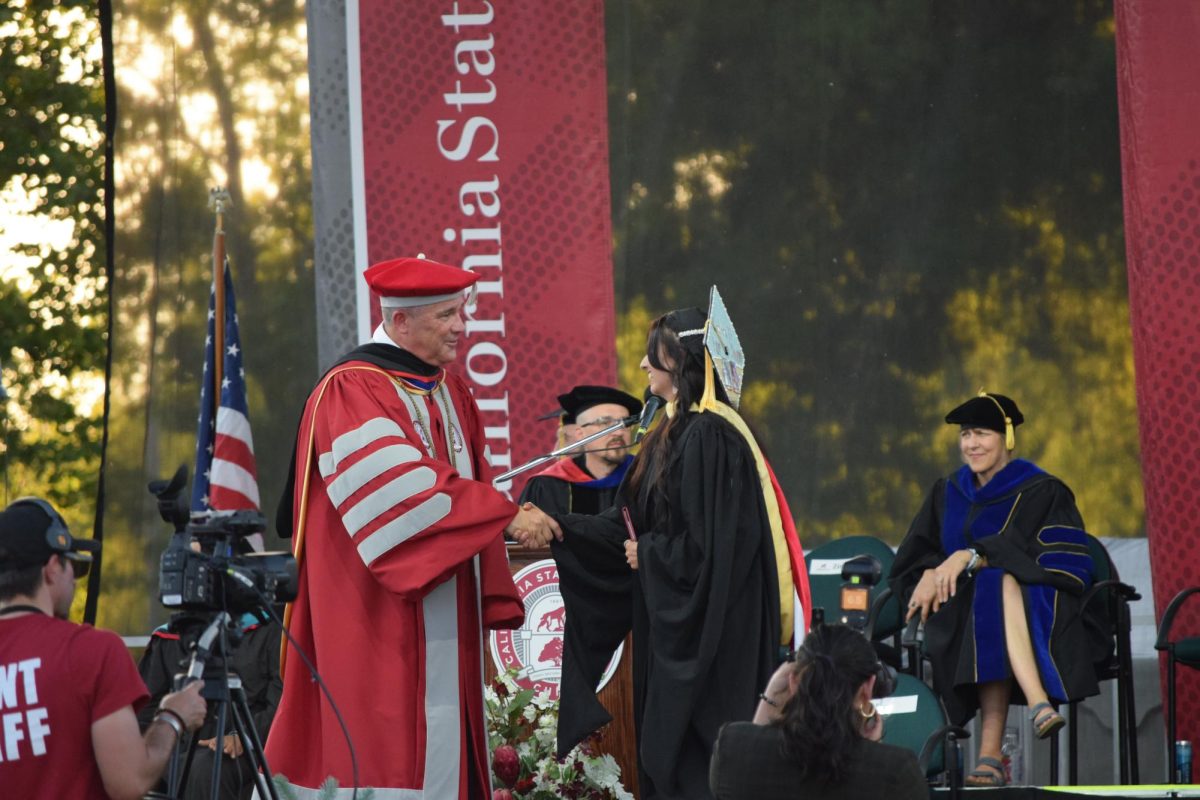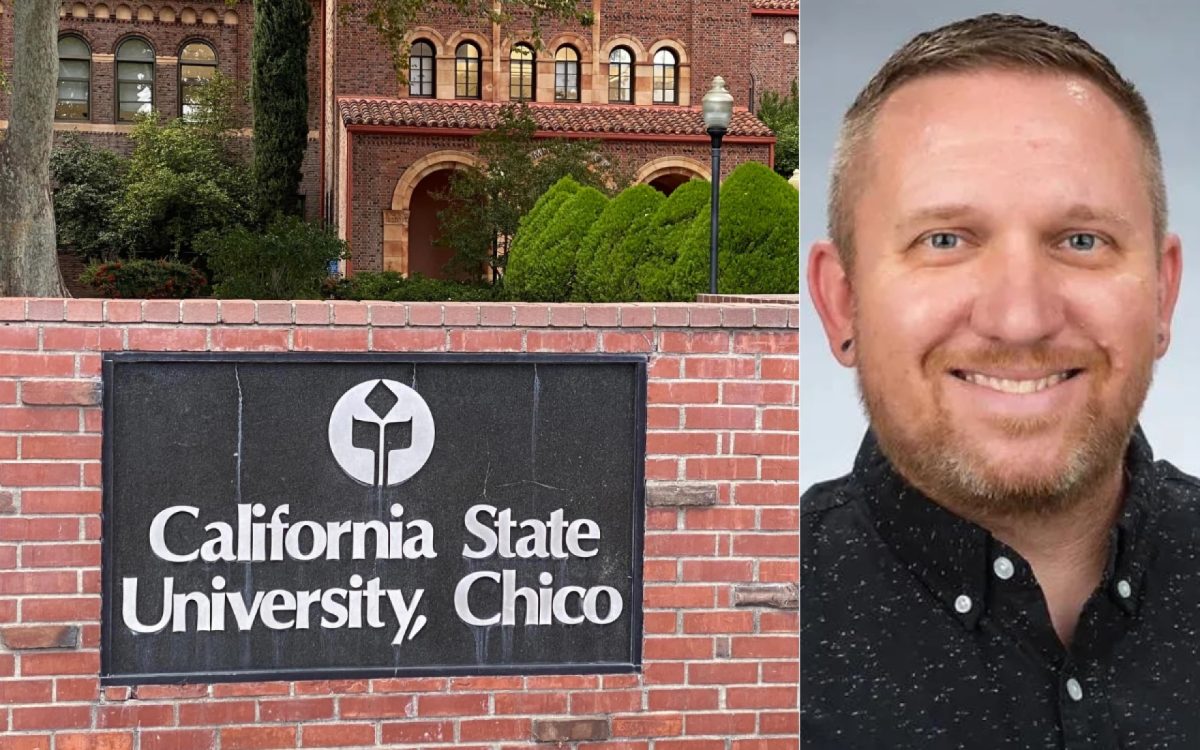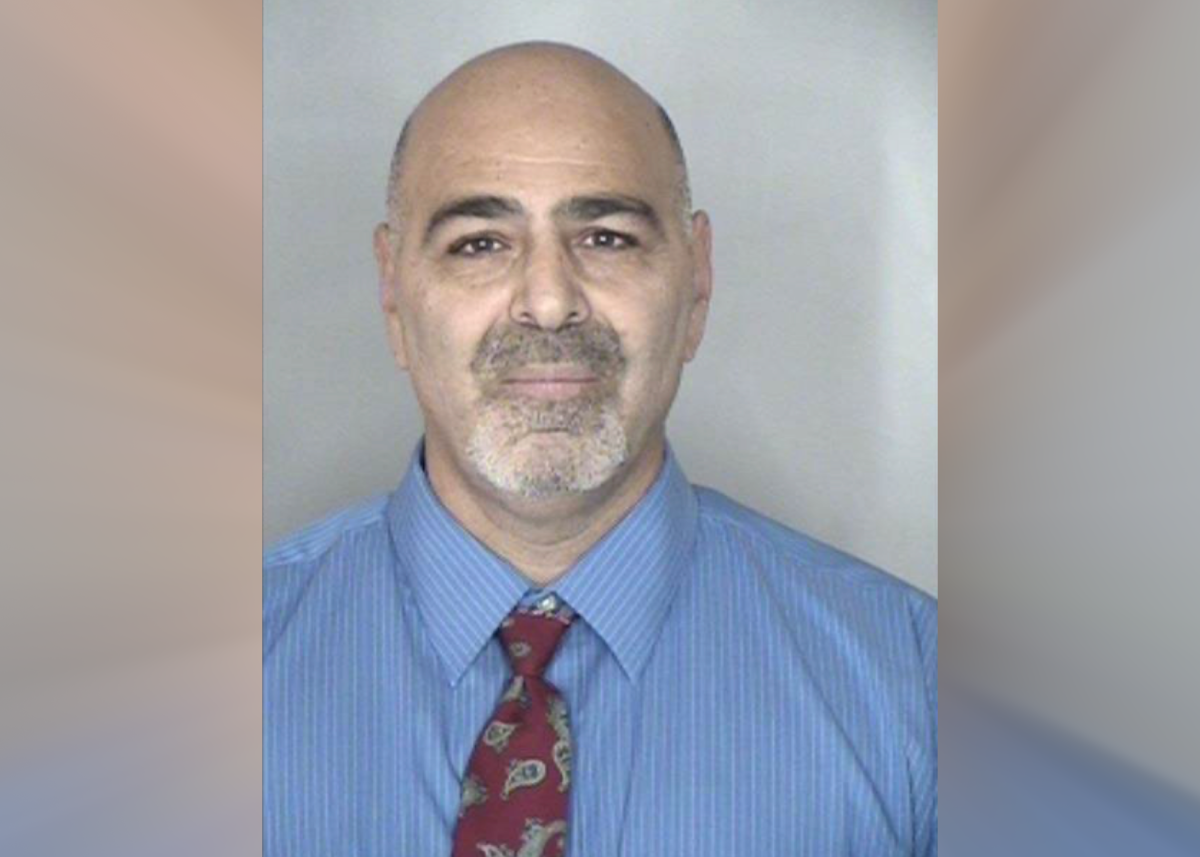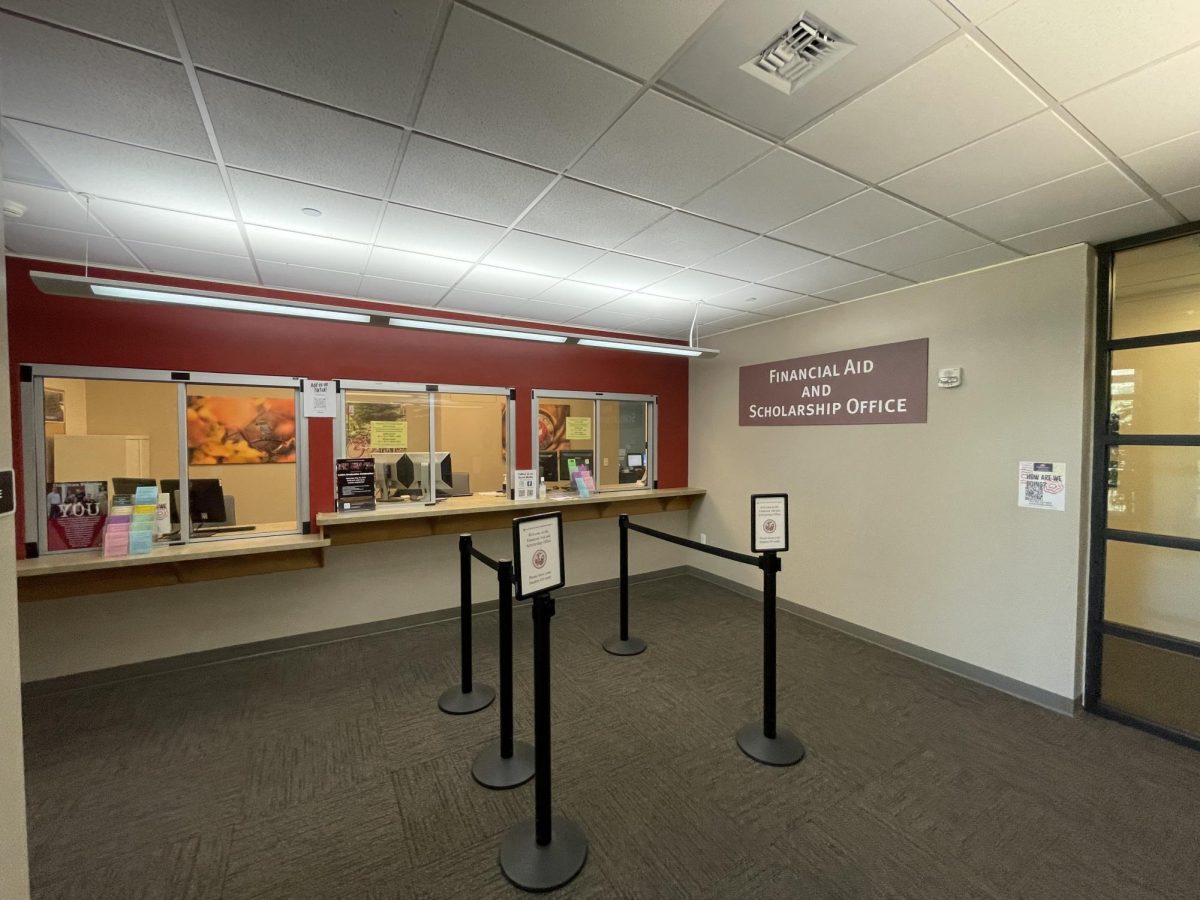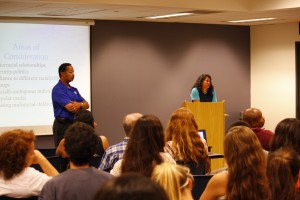
Charles Carter, director of the Cross Cultural Leadership Center, and Dawn Frank, advisor for the Educational Opportunity Program talk to over 50 people Wednesday at a diversity presentation in BMU 210.
A discussion on challenges with multiracial identity was held in the Bell Memorial Union Wednesday.
Titled “Beyond Black and White; A Mixed Race Experience”, the discussion began at noon with life stories from of the event’s two facilitators. Charles “CC” Carter, director of the Cross Cultural Leadership Center and director of Student Life and Leadership and Dawn Frank, adviser of the Educational Opportunity Program, initiated the conversation.
Carter said he remembers being called a “half breed” while growing up in a predominantly black San Francisco neighborhood. He was known as a “war baby”, or the child of an African American World War II veteran and a Japanese native mother. Carter’s father left early in his childhood, and his mother died when he was 13, he said. Confusion with his racial identity, coupled with his struggles living as an orphan made it difficult for Carter to find where he fit in.
“It rips your soul apart in a lot of ways,” Carter said in an interview after the event. “It creates a variety of challenges when trying to figure out who you are.”
Frank’s father was also a war baby, of African American and Okinawan descent. Her mother was Caucasian. Despite having a diverse ethnic heritage, Frank said she first became conscious of how she was viewed racially when a friend in elementary school angrily called her a black racial slur.
Both of the speakers said they discovered that identity was a matter of choice for them, based on values more than ethnicity.
“It is your right to self identify,” Frank told the audience.
In 2000, the U.S. census allowed citizens to apply more than one racial category to their identity for the first time, Frank said.
Despite the government recognizing the demographic, Frank said the system still has a long way to go. For example, when faculty want to find and rally Chico State students for an ethnically specialized club like the Pan African Union, students who apply more than one ethnicity to their CSU applications will not show up in a directory search for African American students.
“Mixed race is still being shoved into a binary,” Frank said.
After sharing their stories, they opened the discussion up to the audience. Asking individuals of mixed race to acknowledge themselves, almost three quarters of the packed room raised their hands.
Communications major Kimberly Miller recounted being the only half black student in a primarily white Vermont Liberal Arts School almost 30 years ago.
“All I could think about was ‘who am I?’ or ‘what am I?’” she told the group.
Caitlin Cunningham, an an intern adviser for the Educational Opportunity Program, talked to attendees about her struggle to make her Caucasian mother understand that the concept of “white privilege” didn’t apply to her personally because those around her identified her as an African American.
“They have an opportunity for the first time to talk about this emptiness, this area of trying to identify who they are, with people that truly understand what that struggle is,” Carter said.
Carter and Frank said that they plan to coordinate more discussions on the same topic in the near future to help students “find a place of solidarity” to share their struggles.
“We haven’t scratched the surface of the conversation,” Carter said.
Mozes Zarate can be reached at [email protected] or @mzarate139 on Twitter









